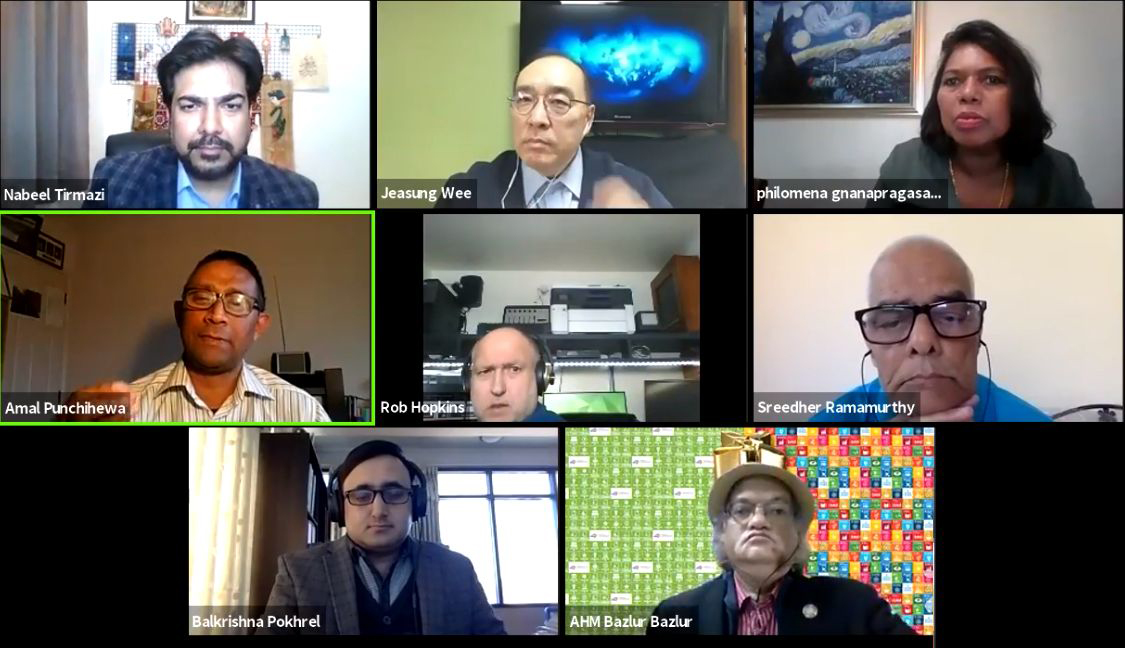Asia-Pacific Institute for Broadcasting Development(AIBD) Regional Webinar on Trends in Over-the-top (OTT) for Community Media 9 February 2021

Community Radio has always proved to be an incredible medium to broadcast information, even to the remote, marginalized, and various vulnerable communities. However, with the technological evolution and availability of internet in remote areas, media consumers are now relying heavily on smart apps and online media. The younger generation is losing interest in conventional Radio programming while the older generation is trying to adjust with the new lifestyle which latest technology offers.
To adapt with this kind of new media environment, Community Radio should uplift itself to meet this challenges. One of the best possible options will be Community Radio station integrates its processes to modern media operations, such as Podcasting, Internet Radio and adopting OTT technology for Community Media (Visual and Auditory) with the latest IP based broadcasting technology.
AIBD is organizing a webinar for its members and especially for low-budget radio broadcasting organisations to discuss the immense potential to adopt OTT technology to enhance its scope and impact. Mr Jeasung Wee, broadcasting consultant from South Korea, will deliver his lecture on the subject, which will be followed with a moderated discussion involving regional community media experts.
Objectives
This workshop aims to highlight the new challenges from changing the New Media environment for community radio broadcasters. The session will also introduce the latest broadcasting technology for managing low-cost community media (Radio and Visual medium).
Content:
I) Community Radio: Challenges & Opportunities
a) Role of Community Radio
b) Adapting Community Radio in the age of new media
c) Adopting IP based technology for Community Media
II) Latest Broadcasting Technology for Community TV
a) Managing low-cost Broadcasting studios (visual and audio)
b) Using the power of Mobile Journalism
c) Designing small sized newsroom and studios
III) System Design for Community Media
a) System design based on UNESCO’s model
b) Concept of one-studio; one control room
c) Live and Pre-Recorded Field Production System
IV) Future of OTT based Media for Local Community
Mr Wee revealed to the audience that with the evolution in technology, many solutions are now quite cheap. Any community organisation can now manage a video studio within the budget of USD 15,000. He also talked about the UNESCO’s model of community media.
After the session, the event was followed by an hour-long moderated discussion by the renowned regional community media practitioners. The session was moderated by Dr Amal Punchihewa, Broadcasting Consultant from New Zealand. Dr Sreedher Ramamurthy from India, Mr Balkrishna Pokhrel from Nepal, Mr Bazlur Rahman from Bangladesh, Mr Rob Hopkins from Canada, took part in the discussion.
Dr Sreedher Ramamurthy, a famous name in the South Asian fraternity of community media, shared his views on the subject that apart from OTT applications, strategies should be devised to manage efficient intranet systems for the local communities. He also emphasised on the importance of distance learning by stating that community radio aided with visual medium has the potential to replace the mainstream media as it is more relatable to the communities.
Mr Bazlur Rahman, CEO of BNNRC Bangladesh, mentioned that OTT has now become a survival strategy for the community radio. Since the listenership of community radio is losing while 5G is making its way, it is important for the broadcasters to integrate both mediums to create a larger impact. It is high time to rethink the strategies to rescale, upscale and descale the community radio by using the OTT platform.
Mr Rob Hopkins, Community Radio Broadcaster from Canada, mentioned that relevance is the key to the success of community media. In the age of social media, where content is generated at a very high rate, it is important to be relevant, reliable and relatable. He mentioned that effective local radio stations can play a very significant role not only to promote local culture but also to combat disinformation related to the local events. However, he mentioned that because of high penetration of the new media, the major threat would be the loss of intellectual property, regulators should work on this aspect to control such violations and community media should devise such their new media strategy which is more controllable.
Mr Balkrishna Pokhrel, President, ACORAB, Nepal mentioned the role of community radio in the social development. He mentioned that in a recent survey, for over 70 percent of population in Nepal, the major source of information is radio, but 50 percent people have radio sets, it means that listenership is gradually growing through internet streaming. He mentioned that since Nepal doesn’t have any policy on OTT, its high time to voice out the importance of having one to avoid any near future challenge for the community media.